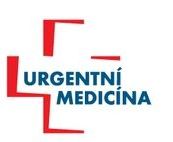This Code of Ethics of the Emergency Medicine journal regulates the obligations of authors, reviewers and editors, and is binding for them.
1. Author´s Code of Ethics
By submitting the manuscript authors acknowledge that:
- they submit manuscripts resulting from their original work only and they are able to prove this fact when required;
- they only submit manuscripts that have not been previously published elsewhere;
- they do not intend to publish the submitted manuscript elsewhere neither currently nor before the evaluation process is finished;
- they are the only owner of copyright related to the submitted manuscript, in the case of co-authorship all co-authors are listed and that all of them agree to the publication of the manuscript;
- they will inform the editor of any conflict of interest relating to the submitted manuscript;
- they clearly and accurately list all the sources used when preparing the manuscript;
- they agree to the editorial control of the journal;
- they submit the article to the mutually anonymous review process and following evaluation by the editors;
- they will inform the editor of any possible errors in the manuscript, including errors in the results of the research described in the manuscript;
- they provide the publisher with free-of-charge right to publish the manuscript in both printed and electronic form and incorporating the article into the database, in which the Emergency Medicine journal is or will be included.
2. Reviewer´s Code of Ethics
By accepting the manuscript reviewers acknowledge that:
- they will inform the editor of any conflict of interest immediately;
- they assure that the information concerning the manuscript and contained in the manuscript was confidential;
- they will inform the editor of all the circumstances, that may be a reason for a refusal of the manuscript;
- they always evaluate manuscripts only in terms of their technical content;
- they will peer a review process report personally according to the best of their knowledge and belief;
- they will inform the editor if they do not feel sufficiently qualified for a professional assessment on the manuscript, or that the review process on their part will not be possible for any reason.
3. Editor´s Code of Ethics
Editor is obliged to:
- assure that the information concerning the manuscripts and their authors was confidential;
- eliminate any conflict of interest;
- provide an unprejudiced and impartial evaluation of manuscripts for their technical content only;
- accept manuscripts from authors regardless of race, gender, sexual orientation, religion, ethnicity, nationality or political opinions;
- provide an initial internal review of the manuscript concerning the formal aspects and it´s conformity with the specialization of the magazine, and to notify the authors in the case of a negative evaluation immediately;
- arrange the handover of anonymous review assessments to the authors to incorporate the comments into the manuscript;
- be responsible for the decisions related to the publication of individual manuscripts. Editor has a full competence to accept, reject or require corrections of the manuscript;
- stop the evaluation of all the manuscripts that are suspected of plagiarism or fake data. All manuscripts are checked by a plagiarism detection system;
- ensure the quality of manuscripts and scientific content;
- publish corrections, explanations or apologies if necessary;
- constrict the article that has been demonstrated to be incorrect or seriously erroneous. Constriction of the article is always discussed with and approved by the editorial board. After the decision of the editorial board the constriction of an article shall be announced in the next issue of the printed version of the journal and in an appropriate issue of the electronic version of the magazine;
- monitor and prevent the violation of publishing ethics. Compliance with publication ethics is overseen by the Editorial Board.
